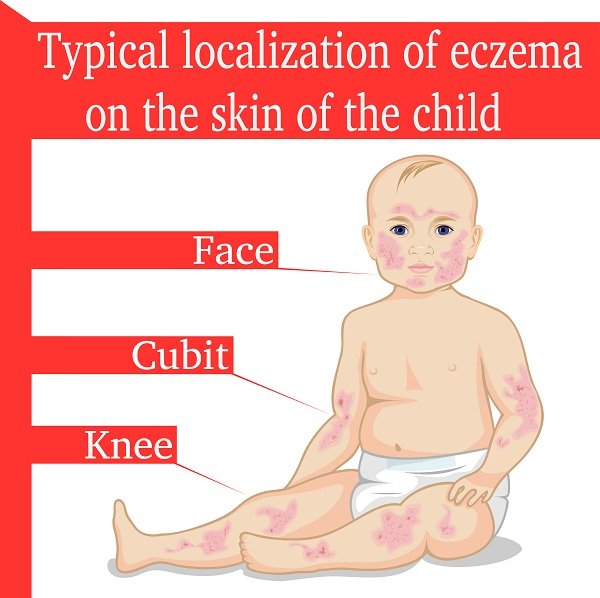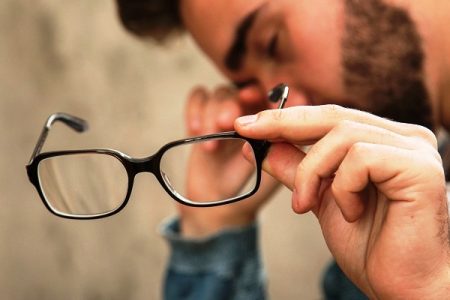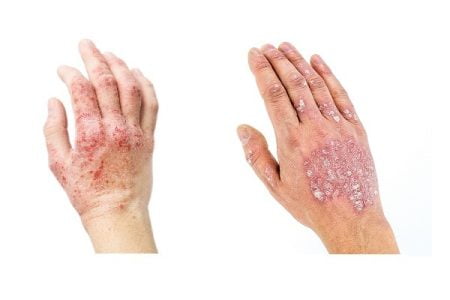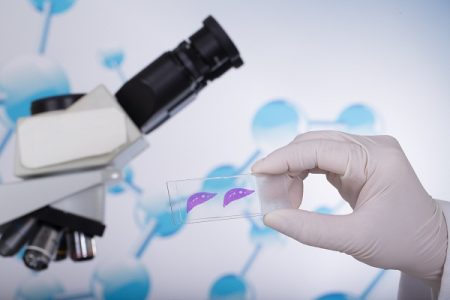What Are the Symptoms of Eczema?
- Updated on: Jul 9, 2024
- 3 min Read
- Published on Oct 3, 2019

What does eczema look like?
The symptoms of eczema are varied and unique for each individual. It may also appear to be different at each stage, for a particular individual. The symptoms may also show varied patterns at different time and can also spread to other areas of the body, though rarely.
Patients with any type of eczema usually experience itching, redness and inflammation. Classification of the different types of eczema can be done based on the distribution of the outbreak. Usually it begins with an itch prior to the appearance of a rash.
The first appearance of eczema is observed in babies; however children and adults can also have it. No two individuals develop the exact same signs of eczema. Affected areas appear extremely inflamed in severe cases. At certain times, the symptoms may appear to aggravate in a particular individual and at other times these may improve and a person feels better.
Common Symptoms of Eczema
Patients can develop all or few of the below mentioned symptoms in eczema.
- Intense itching and scratch
- Rashes with bumps which can ooze, drain, or crust
- Dry, thick, warm, tender, sensitive skin
- Red, inflamed, rough skin
- Dark or light coloured patches of skin
- Scaly, raw or lathery patches of skin
- Areas of swelling or inflammation
- Cuts or cracks in skin
- Irritation or pain
Eczema rash can occur anywhere on the body, but is usually seen on face usually cheeks, behind ears, bottoms, hands and feet, inside elbows or back of knees, scalps, and eyelids.
Symptoms of eczema in infants

- Dry and itchy patches of skin which affects sleep pattern
- Rashes usually develop on torso, face, neck, elbows and knees
- Rashes usually discharge fluid and bleed
- Skin infections are observed due to constant rubbing and scratching
Childhood symptoms of eczema
- Rashes are usually seen in front of elbows or behind knees, neck, wrists, ankles, and between buttock and legs which can eventually thicken.
- Most of the children, who develop this, will also eventually get hay fever or asthma.
Symptoms of eczema in adults
- Rashes developed are usually red, with blisters, oozing, crusting, scaling
- Thickened skin and pigmentation changes. The appearance of skin depends on the skin infected, which can be a result of scratching or rubbing.
When to see a doctor
It is always safe to see a doctor as soon as one detects early symptoms of eczema, so that your doctor can start early treatment of eczema. It is better to consult a doctor if any of the following situations is noted:
- If one has a family history of eczema, asthma, allergies or hay fever along with rashes
- Eczema does not respond within prescribed time and is getting worse
- Eczema patches with pus blisters suggest bacterial infection which need antibiotics
- Skin becoming inflamed or sore
- Fluid discharge from the skin
- Having eczema increases the risk of getting certain viral diseases such as herpes simplex virus, cold sores or genital herpes.
Signs of infected Eczema
Bacteria, fungus and virus are causative agents for infection in eczema, and these infections make it severe and difficult to treat. The skin usually becomes red, inflated and sore.
Severe itching and scratching can result in a damaged skin barrier, thereby allowing entry of micro organism, which can result in infection. Bacterial infections usually are caused by Staphylococcus or Streptococcus.
Fungal infections are mainly caused by Candida or Tinea (ringworm, athlete’s foot and jock itch) and viral infections by Herpes Simplex Virus. People with eczema may be more prone to herpes simplex virus, so it’s advisable to avoid people who have cold sores.
Other symptoms of infected eczema include:
- Fluid drainage
- White or yellow pus
- Blistered infected skin lumps
- Crusts
- Poor response to normal medications
- Rapidly worsening eczema
- Fever and chills are seen in worse cases
Early identifications of infections are critical for timely initiation of appropriate treatment. Proper courses of an antibiotic tablet or liquid medicine subsides the infection.












